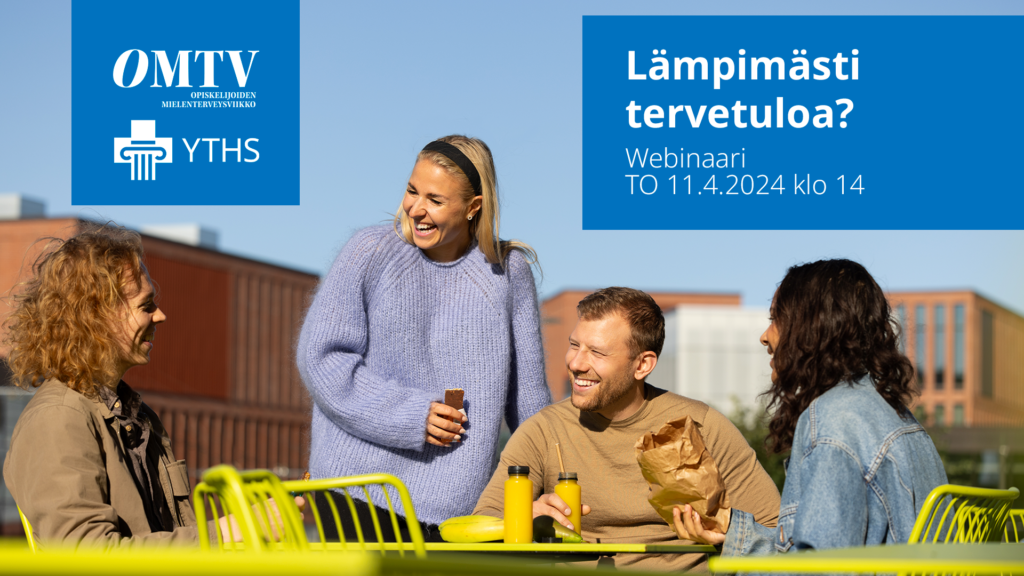The national Students’ Mental Health Week will take place on between 8 and 14 April, 2024. This year, the campaign week’s theme are equality and social accessibility. In the context of student life, social accessibility entails that as many students as possible feel welcome and safe in study situations,events and accessing services. We interviewed psychologist and mental health influencer Julia Sangervo about the role of community in maintaining the mental health of students. Sangervo argues that in a best-case scenario, a student community is able to provide valuable resources for mental well-being.
Loneliness is common, but frequently hidden
“When I worked as a study psychologist, students often told me they felt lonely,” Sangervo recalls. This finding has also been reported in several studies. The latest KOTT survey results show that about 24% of higher education students experience loneliness.
“As a psychologist, it’s also been sad to see how many students think they’re the only one suffering from a lack of social relationships. This means that – despite being widespread – loneliness isn’t talked about enough,” Sangervo argues. “Feeling that everyone else is able to find a group to belong to may actually further increase the negative effects of loneliness.”
In a worst-case scenario, long-term loneliness increases the risk of mental health symptoms. It may even pose a threat to a person’s ability to work and to function effectively. That’s why Sangervo finds it important that the student community is interested in providing inclusive activities, so that as many students as possible would be welcome just as they are.
Social accessibility accommodates different needs and interests
Sometimes the legal requirements for accessibility are met, and yet an atmosphere can feel unwelcoming. Sangervo explains that even fairly small words and actions can make social accessibility visible.
“I once attended a meeting where one of the participants said they doodled, because it helped them concentrate better. An accepting atmosphere helps accommodate as many people as possible.”
Sangervo is intrigued to see how the student community has started to pay more attention to the role of equality and inclusion in creating a welcoming atmosphere.
“For example, more and more student associations are now paying attention to the fact that not all participants are interested in heavy drinking. I’ve also attended an event that had a separate quiet room for those who needed a calm space,” Sangervo says. “It’s also important to actively communicate how equality and accessibility have been taken into consideration. This way no one ends up skipping an event just because these accommodating arrangements weren’t mentioned on the invite.”
A supportive study community and its wider impacts
Traditionally, psychological support has been focused on supporting the individual. Sangervo argues, however, that a safe, pluralistic community can support mental well-being in a way that reduces mental stress.
“When a person feels like they belong in a community that’s supportive, this can reduce the risk of social exclusion”, says Sangervo. “In the big picture, social accessibility can help support our mental health and even our ability to work and to function effectively.”
Students’ Mental Health Week is coordinated by Nyyti ry. For more information about the programme and how to participate, check out the Nyyti website. #OMTV2024

The “Lämpimästi tervetuloa?” webinar on 11 April, 2 p.m. (in Finnish)
Factors such as minority status, class background and various health conditions can have an influence on whether students feel welcome at a party, in the student restaurant or at a lecture. Our “Lämpimästi tervetuloa?” webinar (Warmly welcome?) highlights the importance of a sense of community and encourages everyone to create a more accessible study culture.
